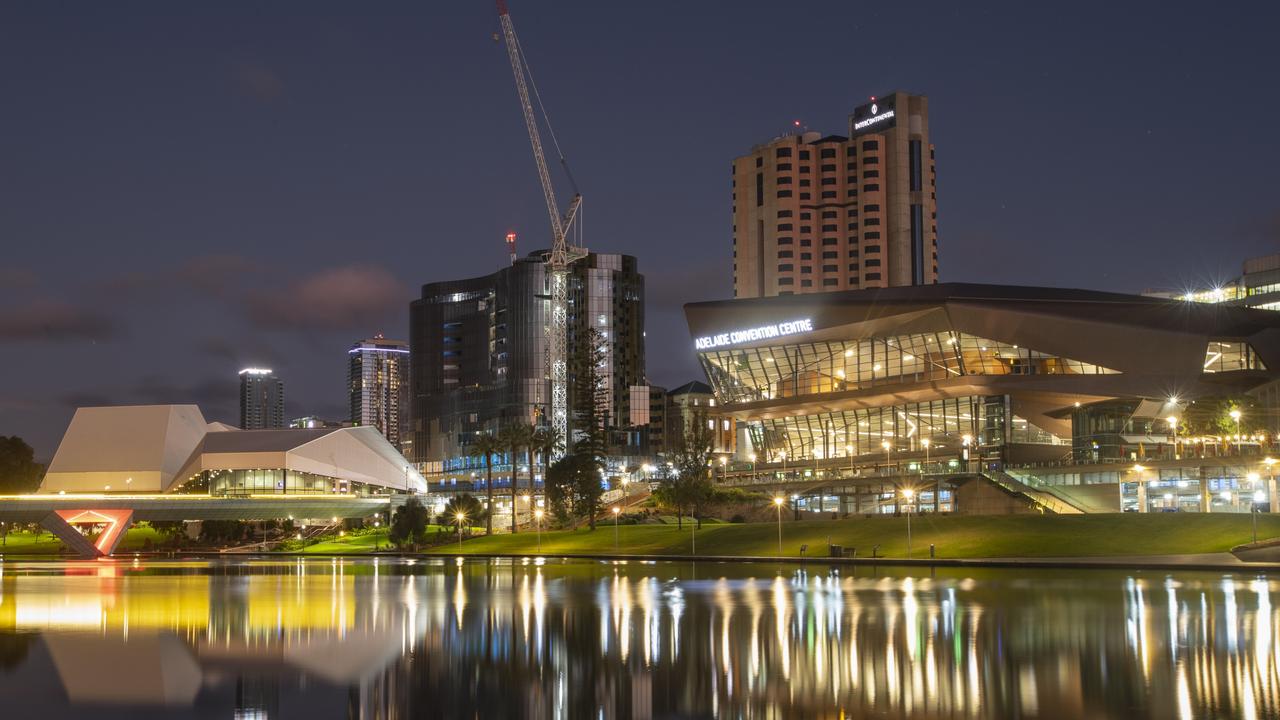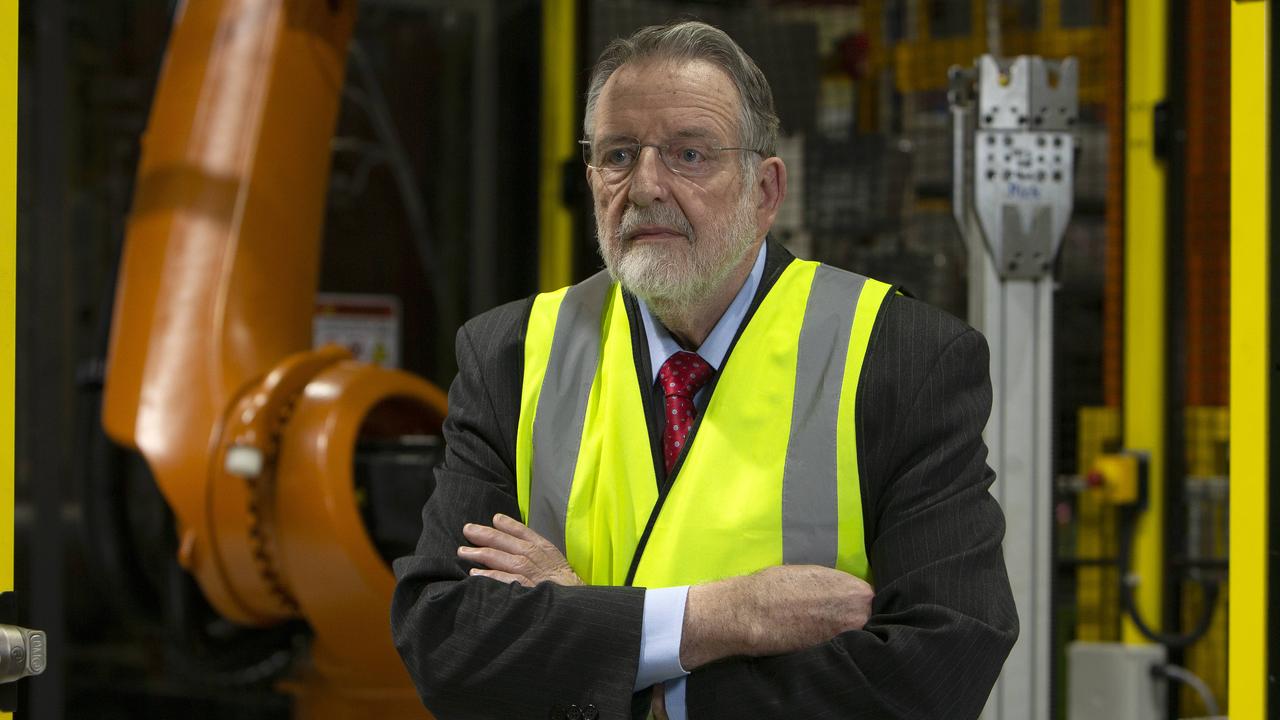The state’s two blast furnaces are in serious trouble following the storm, with the Port Pirie smelter out of action for up to two weeks
THE Whyalla steelworks is at a “critical” stage and Arrium staff are desperately trying to stop hundreds of tonnes of molten steel from cooling.

SA Business
Don't miss out on the headlines from SA Business. Followed categories will be added to My News.
- Twin tornadoes ‘caused catastrophic blackout’
- Waste heat to be turned into electricity supply
- Treasurer Tom Koutsantonis rejects $200 million Nyrstar smelter blowout claim
- Nyrstar launches sale of mining assets
THE Whyalla steelworks is at a “critical” stage and Arrium staff are desperately trying to stop hundreds of tonnes of molten steel from cooling.
The company’s administrator, Mark Mentha, said they were trying to get the steelworks into “safety mode” but it was at a critical stage on Thursday afternoon.
Mr Mentha said Arrium had brought a gas turbine online to generate a small amount of power, but the company was “fearful” grid supplies would take a week to return.
The steelworks had just one operating telephone and with Vodafone and Optus networks out in Whyalla, communication was very difficult
The operation is trying to avoid the solidifying of molten metal which has affected the Port Pirie smelter.
If this was to happen, four 180 tonne ladles full of molten steel would have to be jackhammered out later.
The caster works — the recognisable part of a steelworks where slabs and billets come out — had already cooled and welders would have to go in and cut the steel out.
Mr Mentha said the steelworks had been able to get a gas turbine going and its boilers were trying to generate adequate steam.
“If we can do that we can reheat the blast furnace.’’
Mr Mentha said this would allow a number of processes to operate to keep the steelworks from reaching a critical stage.
“We won’t be making anything. We’ll be making sure critical parts of the plant don’t fail.’’
Mr Mentha said it was too early to estimate the cost of the storm outage on the operation, which is on the sale block after being placed in administration early this year.
In some good news, the steel workers on Thursday voted to accept a pay reduction of 10 per cent, a reduction in super payments to the statutory 9.5 per cent level and agreed to a four-year enterprise agreement, bringing them in line with the mine workers.
Mr Mentha said this would give any potential buyer confidence in the industrial relations environment at Whyalla.
OUT OF ACTION
NYRSTAR’S Port Pirie smelter will be out of action for up to two weeks and have a $7.3 million impact on the company’s bottom line after the slag in the blast furnace solidified.
Whyalla’s blast furnace is also reaching a “critical” stage in coming hours if power can’t be restored.
Nyrstar said the company tried to keep its operations going with backup power but was not able to.
“A back-up diesel generator at the Nyrstar Port Pirie site sustained the blast furnace for several hours after the power outage commenced.
“However, with the power outage continuing for a prolonged period, the slag in the blast furnace solidified and the blast furnace cannot be tapped.

“It is expected that the blast furnace will be down for approximately 10 — 14 days for repairs necessitated by the power outage, negatively impacting metals processing (earnings) by approximately EUR 3 — 5 million.
Chief Executive Bill Scotting said: “We are obviously very disappointed that the power supply in South Australia has failed and the impact that this has caused to the Port Pirie plant.
“The Port Pirie site is working incredibly hard to ensure we are in a position to restore the blast furnace to full functionality as soon as full power is restored. No other plant damage has occurred and the outage is not expected to have any impact to the Port Pirie Redevelopment schedule.”

Backup generators
BHP said Olympic Dam was safely shut down.
Following the loss of power in South Australia on Wednesday, 28 September, Olympic Dam was able to safely shut down operations and demobilise site.
Back-up generators are currently providing power to critical infrastructure, which will allow a restart of operations when power is restored.

Our primary focus is the safety and welfare of our people. We are liaising closely with Electranet and the State Government to ensure power is restored to Roxby Downs town and Olympic Dam as soon as possible.
Production impacts will be provided in the next quarterly operational review, scheduled for 19 October.
Olympic Dam produces more than 10 per cent of BHP’s copper output and uses as much power as a substantial regional city.
Australian Industry Group chief executive Innes Willox said the power outages compounded SA’s already poor reputation for high power prices and power availability.
“The blackout adds a sobering new dimension to SA’s power woes, which have been undermining confidence and causing major price spikes for some time.

“The storm damage to power lines has been severe and many individual businesses will have incurred big costs due to the power outage occurring in the middle of production processes and we will be talking to members to assess the fuller implications.
“It is hard to accept that the entire state is vulnerable to shutdown in a critical incident. Dealing with this situation needs to be a national priority and we are talking to all concerned to ensure future disruptions are minimised.
“The events will need to be reviewed to see how the system performed, how it might be improved, and how often we should anticipate comparable challenges to the network.’’
“All efforts should be taken at a local and national level to avoid a repeat of the considerable cost and inconvenience to business and the community from the critical power failure in South Australia.”

Bailies Holst chief economist said SA needed to rethink its entire approach to electricity management.
“Electricity failures of this nature cause enormous damage to South Australia’s reputation interstate and overseas,” Mr Gobbett said.
“It’s not just the money lost by shutting up the entire shop for a day or two but the long term effects this has on the State’s credentials as a business friendly destination.
“This is a real wake up call for the State to completely rethink its approach to power, go back to the drawing board and come back with a real solution that incorporates all forms of energy including nuclear.”



